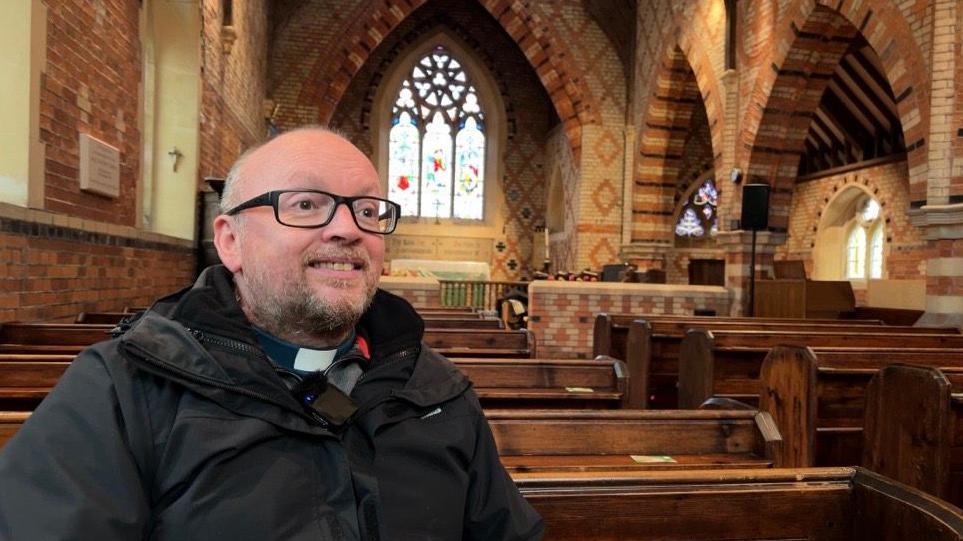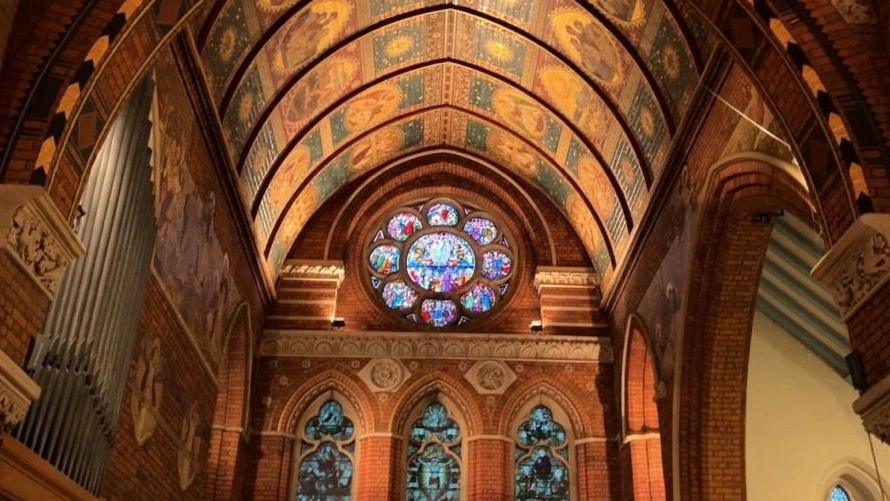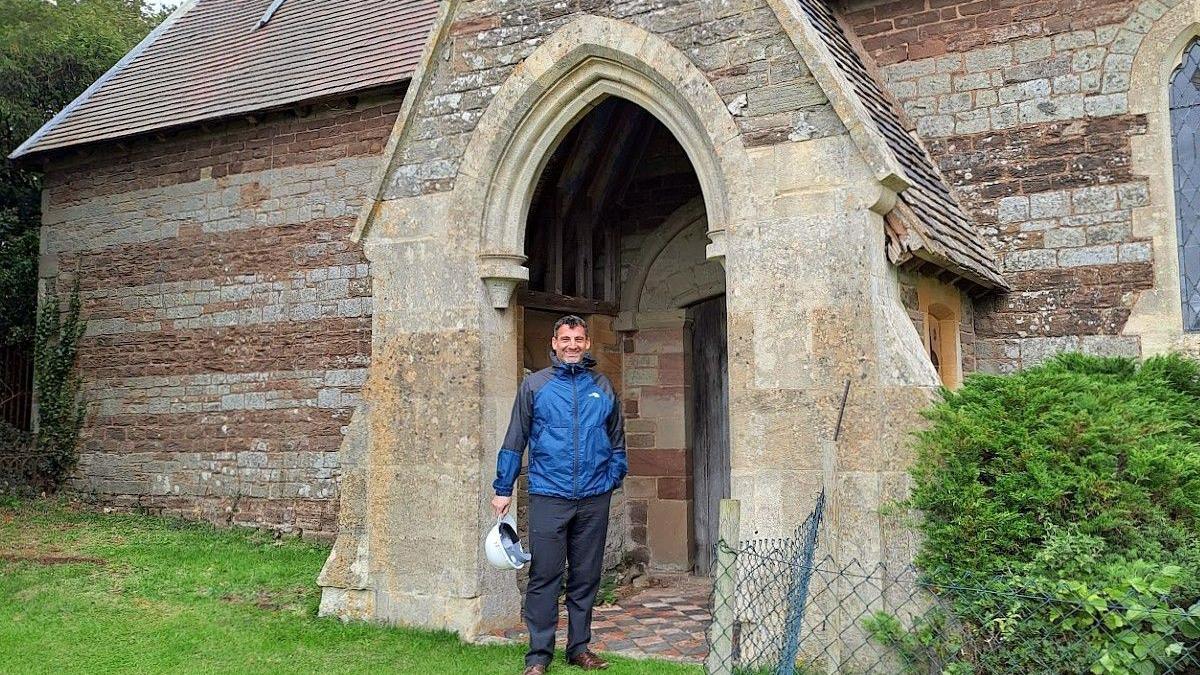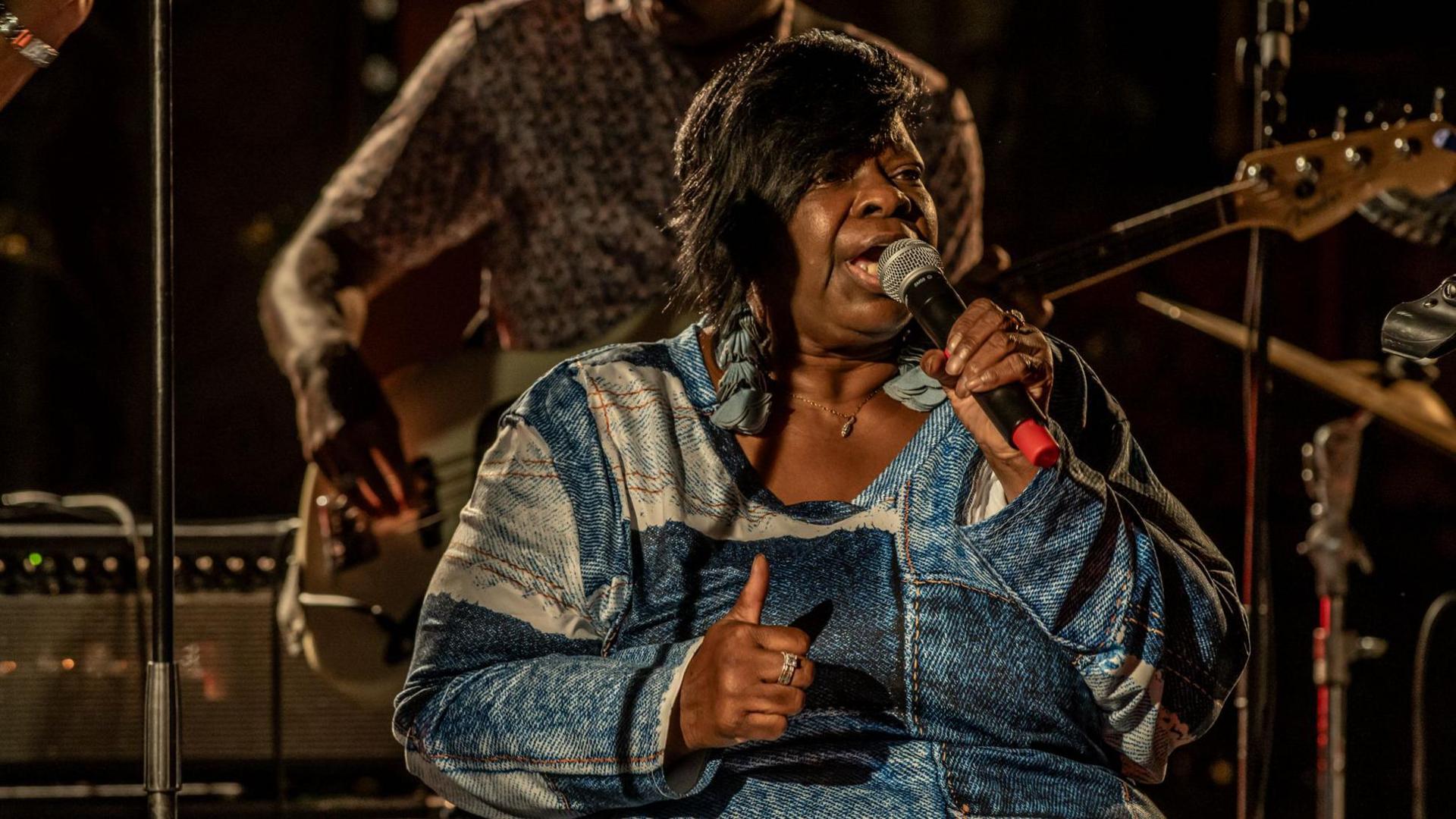How churches are surviving challenging times

Vibrant church communities were trying to innovate, the Reverend Mike Griffiths said
- Published
Many church communities across the country fear for their future, but some in Berkshire are innovating to keep themselves vibrant.
"We recently had a talk about otters, which was incredible. We had a live band karaoke evening," said the Reverend Mike Griffiths, the rector of the West Downham Benefice, which has six parishes.
"In one of the villages there's a duck derby, where you buy a duck and they get released and the winning duck wins the prize."
A survey by the National Churches Trust (NCT), which helps churches stay open, found 2,000 feared they would either be "definitely" or "probably" not used as places of worship by 2030.
"Churches are funded by the people who go. Lots of people think the Church of England is really rich - it really isn't. It is the generosity of people who gather that enables these spaces to be open and available," Mr Griffiths said.
More from Berkshire
Hosepipe bans across the south to continue
- Published27 October
Thousands risk losing chance to vote by post
- Published26 October
Crime and community safety summit takes place
- Published25 October
When asked by the NCT, about two-thirds of the 3,600 churches surveyed said they were confident they will "definitely" remain open for at least another five years.
Sir Philip Rutnam, the body's chairman, said the government, denominations and heritage bodies "must all recognise their leadership roles, act together and act fast" to ensure churches are preserved.
Ken Smith, a warden at All Saints' Church in Maidenhead, said the church, designed by GE Street in a neo-Gothic style and opened in 1857, has a list of running repairs.
"We are spending money and we need to spend a lot of money," he said.
"We are spending about £30,000 on repairing the outside of the walls that no one will see but they need repairing.
"The stained glass windows - when you look closer, there are holes in them. You can see light coming through. That is going to cost us £45,000 – when we can afford it. Of course, we need to raise the money."

All Saints' Church in Ascot Heath was first opened in 1864
The Rev Dr Darrell D Hannah, the rector of All Saints' Church in Ascot Heath, which opened in 1864, said its financing was a "constant concern" but the community was more than just its building.
"The church is the people and the building helps us to worship God," he said.
"The building helps us to draw people into the community but the building is not the focus."
A government spokesperson said churches can apply for funding from different pots, including the Listed Places of Worship Grant Scheme.
"Listed places of worship serve as vital community hubs for faith communities whilst providing valuable services to the wider public," they said.
"Many are buildings of exceptional architectural and historical significance that form an integral part of our national heritage."
Get in touch
Do you have a story BBC Berkshire should cover?
Related topics
- Published16 September

- Published7 September
